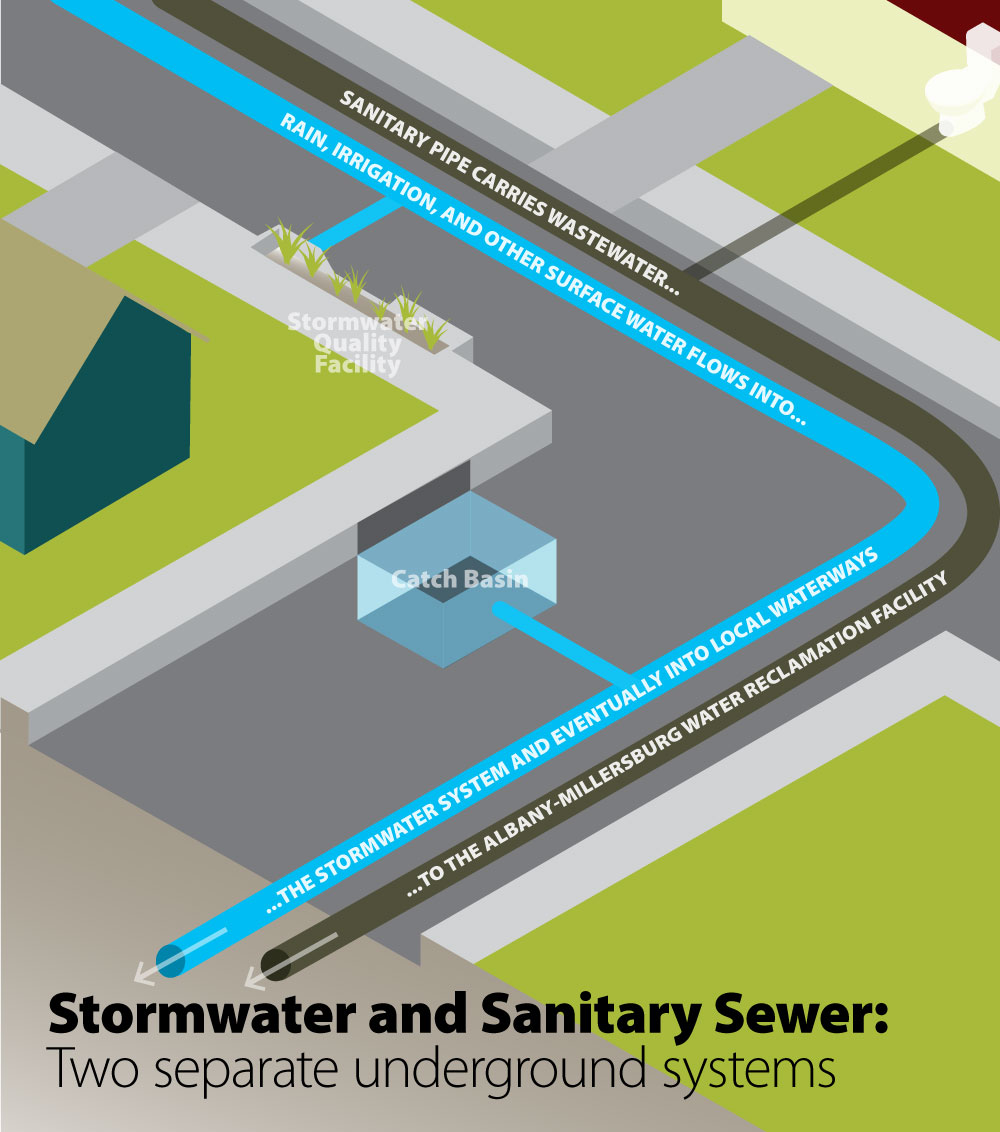Stormwater is generated from water that falls from the sky, including rain, hail, and snow.
In a natural, undeveloped landscape, most stormwater soaks into the ground to be stored or filtered before it reaches natural waterways.
But in a city most stormwater falls onto impervious surfaces. These are surfaces that do not absorb water like roads, sidewalks, rooftops, or parking lots. Albany typically receives over 40 inches of rain per year. During rain events, significant volumes of water runs off our homes, businesses, and roads and across these impervious surfaces.
What's a stormwater system?
It is important to have infrastructure in place to manage this stormwater runoff. Infrastructure for stormwater includes pipes, ditches, and other facilities to manage this stormwater safely and efficiently. Without these facilities, streets would be dangerous and potentially impassable during rain events, runoff and flooding could cause widespread property damage, and Albany’s waterways and riparian areas would be at risk.
It's a common misconception that Albany’s stormwater drains and pipes connect to the City’s wastewater treatment plant. The stormwater system is separate from the sanitary sewer system. In most of Albany, stormwater flows to inlets, pipes, and ditches that carry it directly to local waterways without any treatment at all.
What challenges does Albany face with our stormwater system?
Consequently, trash, debris, and harmful contaminants are also carried to the waterways. As runoff flows across the ground and into the stormwater system, it picks up pollutants that you can see (debris, dirt, and grease) and others that you can’t (fertilizers and detergents). Basically everything that enters a stormwater system is carried untreated into water that we use for recreating, fishing, and drinking. Runoff can also cause erosion and sedimentation by sweeping away and displacing soil. It can cause localized flooding when storm drains take on too much water at once.
Untreated polluted water has a direct impact on our waterways. You can do a lot to keep our waterways clean.
More Information:
Maintaining the city's stormwater system
Stormwater Utility
Albany began a monthly stormwater utility in 2017 for single-family residences and all other properties with impervious surfaces. You can read more about the development of this utility here.
Storm Drainage System Development Charge (SDC)
The first of five equal phase-in steps for this SDC took effect January 1, 2024. System development charges are fees placed on building permits in the city of Albany. The charge is calcuated per per square foot of newly created impervious area.
Stormwater Management Plan
Guiding our management of the stormwater utility is our Stormwater Management Plan. You can read the entire plan here.

 (click to zoom)
(click to zoom) (click to zoom)
(click to zoom)


